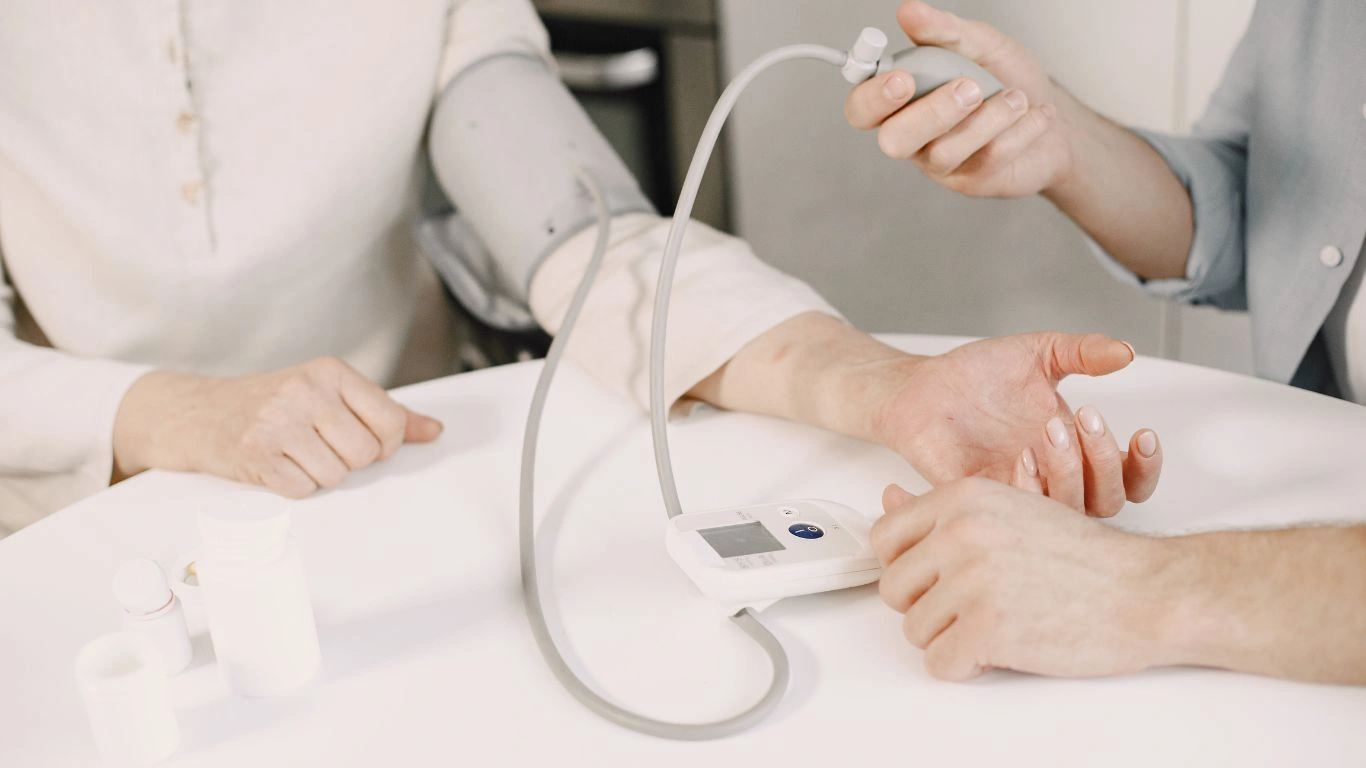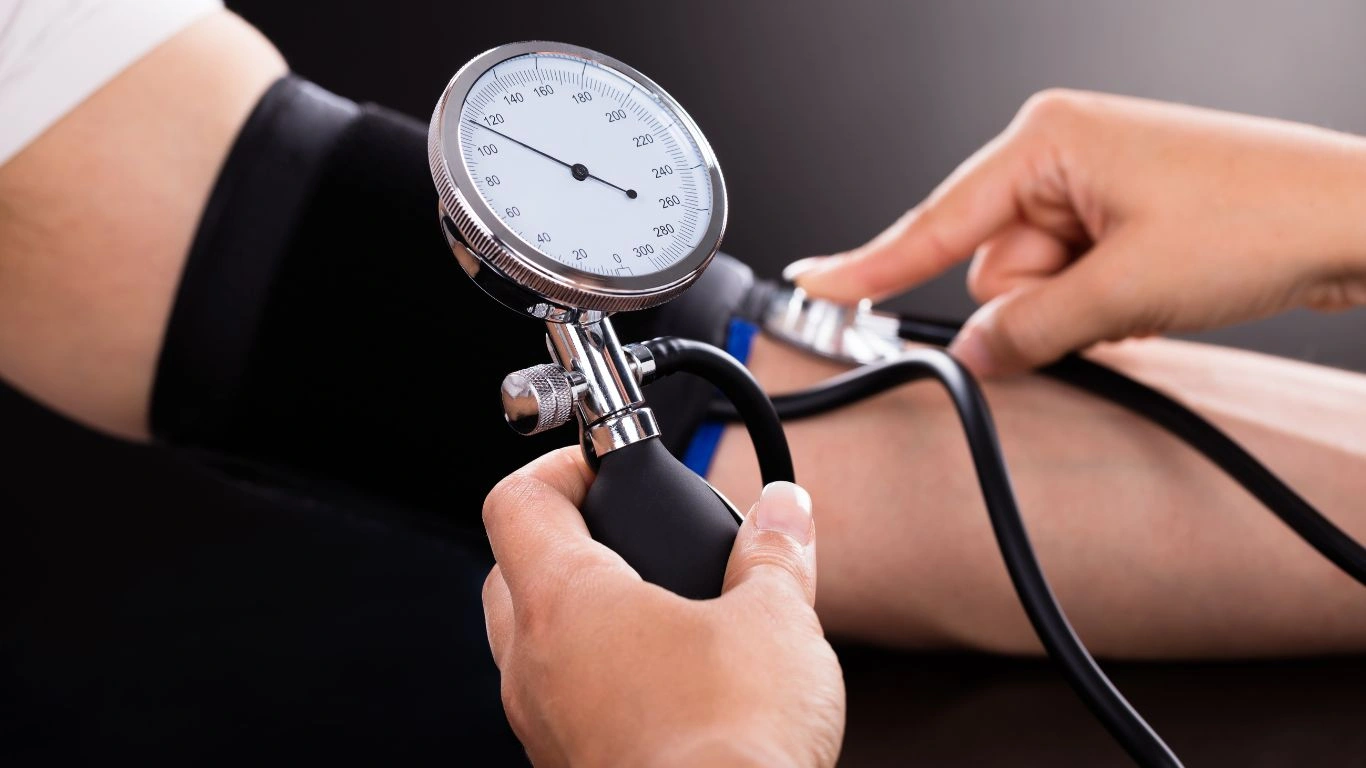High Blood Pressure in Children: Prevention Tips 🩺👶
Okay, so high blood pressure in kids—sounds like something you’d expect in adults, right? But it’s actually becoming more common among younger kids and teens. While it’s often seen in adults, things like poor diet, not enough exercise, and even genetics can lead to kids developing it too. So, it’s important to catch it early and get ahead of it before it becomes a bigger issue.
Let’s dive in! We’ll talk about what high blood pressure in kids really means, why it’s a big deal, and—most importantly—what you can do to help your kids stay healthy. I’ll also throw in some real-life success stories and tips to troubleshoot any roadblocks that might come up along the way.
What is High Blood Pressure in Kids? 🤔

High blood pressure, or hypertension, is when the blood flowing through your arteries is consistently pushing too hard against the walls. In kids, it’s a little different from adults because doctors look at a kid’s age, height, and gender to figure out if their blood pressure is too high.
You probably won’t notice it right away since kids don’t usually show symptoms. But over time, if left untreated, it can lead to some serious problems like heart disease or kidney issues.
Why is it Happening? 🤷♂️
So, what causes high blood pressure in kids? There’s no one-size-fits-all answer, but here are a few of the big ones:
- Obesity: If your kid is carrying around extra weight, it puts a strain on the heart and blood vessels.
- Unhealthy eating habits: Too much junk food, sugary drinks, and salty snacks are big culprits.
- Lack of movement: Kids sitting around all day, glued to screens, are at a much higher risk.
- Family history: If high blood pressure runs in your family, your child might be at a higher risk too.
How Can You Prevent It? 🙌

Now, the good news is there’s a lot you can do to help prevent high blood pressure, and most of it is actually fun (or at least not super hard). Here are some tips:
1. Get Them to Eat Healthier 🍏
I know, I know—getting kids to eat healthy can feel like an Olympic event. But honestly, it doesn’t have to be all broccoli and spinach. Start small. Try swapping out some of the junk food for fruits, veggies, and whole grains. Maybe let them pick out the fruit or help with prepping dinner—it’s a little trick to get them more involved.
For example, my niece LOVES making smoothies, and it’s a fun way to sneak in some spinach and berries. It’s all about making healthy food fun!
2. Get Them Moving! 🚴♀️
It’s not about making your kid a pro athlete (unless they want to be), but just getting them active for an hour a day can really help. Go for a walk after dinner, have a mini dance party in the living room, or play catch at the park. My nephew and I go biking together every weekend, and it’s a blast!
3. Keep an Eye on Their Weight ⚖️
If your child is overweight, it’s time to make some changes. Encourage healthy eating and fun ways to stay active. This can help bring their blood pressure back to normal. But remember, no shame game here—it’s all about creating healthy habits that stick.
4. Limit Screen Time 📱
I get it, screens are the new babysitter, but too much screen time is a major cause of inactivity. Set up some no-screen times—like an hour before bed—and make it a chance for them to do something physical, like a walk or a quick workout.
5. Get Enough Sleep 😴
I’ve found that when my kids are well-rested, they’re just generally in a better mood—and their bodies are working better too. Kids need at least 9–12 hours of sleep depending on their age. A good bedtime routine can make a big difference.
Troubleshooting Common Issues

1. Refusing Healthy Foods 🍟
This one’s tricky, I know. My own kids went through phases where they’d turn their noses up at anything that wasn’t pizza. But one thing that worked for us was involving them in cooking. They loved picking out recipes and helping make dinner. Even letting them “decorate” their plate with fun shapes of fruits and veggies made it less of a battle.
2. No Time for Exercise ⏰
I totally get that life can get busy, especially with school, work, and everything else. But even small changes help. Walk instead of driving when you can, or park further from the entrance to make those extra steps count. We also love doing family “challenges”—like who can do the most jumping jacks in 30 seconds.
3. Too Much Screen Time 📺
Limiting screen time can feel like fighting a losing battle, especially when they’re glued to their phones or video games. But setting clear rules works wonders. We created a “no screens during dinner” rule at our house, and honestly, it made a huge difference. Plus, we found that when we took breaks for outdoor activities, the kids ended up enjoying it more than we expected.
Real-Life Success Stories 🌟

The Johnson Family
The Johnsons had always been a busy family, so fast food was often their go-to. But when their son, Adam, was diagnosed with high blood pressure at his annual checkup, they knew they had to make changes. They started with simple swaps—more veggies at meals, less processed food, and daily walks after school. After just six months, Adam’s blood pressure was back to normal, and they were all feeling more energized and connected as a family.
The Rivera Family
Maria Rivera’s 12-year-old daughter, Sofia, had put on a little weight over the years and was starting to get sluggish. When they found out her blood pressure was elevated, they worked together to turn things around. Maria signed Sofia up for soccer, and they made it a point to cook meals together at home instead of ordering out. It took some time, but after a year, Sofia’s blood pressure was back on track, and she felt more confident than ever.
Key Takeaways / Summary 📚
- High blood pressure in kids is a real concern, but it’s preventable with the right lifestyle changes.
- Eating healthier, staying active, and getting enough sleep are key to keeping your child’s blood pressure in check.
- Small changes make a big difference—it’s all about making it fun and involving your kids in the process.
- Regular check-ups and monitoring are super important, especially if there’s a family history of hypertension.
FAQs 🤔
1. Can high blood pressure in kids be reversed?
Totally! In many cases, with lifestyle changes like eating better and getting more active, blood pressure can improve or even go back to normal.
2. What age can kids develop high blood pressure?
It can happen as young as age 3, but it’s more common in older kids and teens. Early checkups are super important to catch it early.
3. How do I know if my child has high blood pressure?
The only way to know for sure is through regular check-ups. Pediatricians will measure your kid’s blood pressure and compare it to their age and height to see if it’s too high.
References 📚
- American Academy of Pediatrics
- Centers for Disease Control and Prevention
- National Heart, Lung, and Blood Institute
Disclaimer ⚠️
Just a heads up—this article isn’t meant to replace professional medical advice. Always consult with your healthcare provider for any concerns about your child’s health.
Call to Action 📢
If you’re worried about your child’s blood pressure or want to make sure they stay healthy, don’t wait. Get started today with small changes like healthier meals, more playtime, and good sleep habits. And hey, if you found this helpful, share it with other parents who might need a little encouragement too!

Dr. Gwenna Aazee is a board-certified Internal Medicine Physician with a special focus on hypertension management, chronic disease prevention, and patient education. With years of experience in both clinical practice and medical writing, she’s passionate about turning evidence-based medicine into accessible, actionable advice. Through her work at Healthusias.com, Dr. Aazee empowers readers to take charge of their health with confidence and clarity. Off the clock, she enjoys deep dives into nutrition research, long walks with her rescue pup, and simplifying medical jargon one article at a time.






